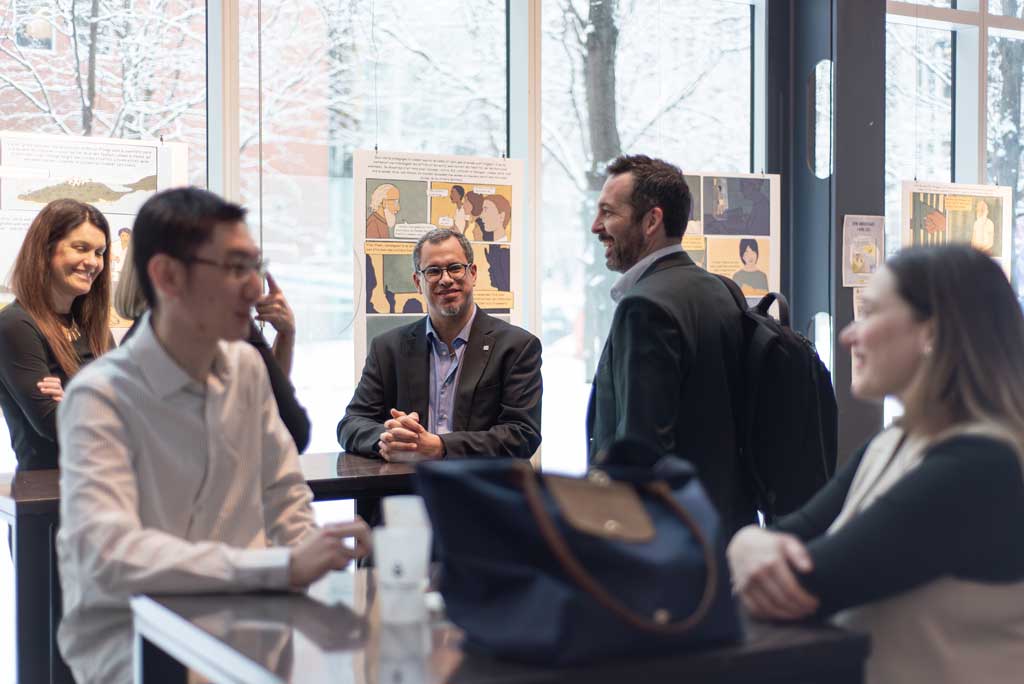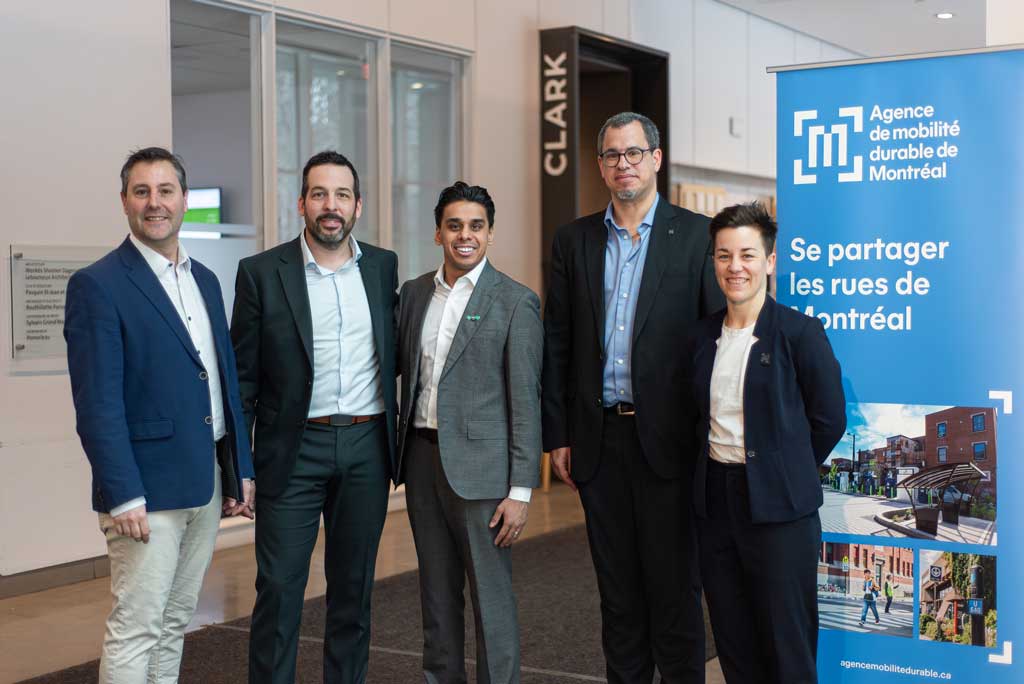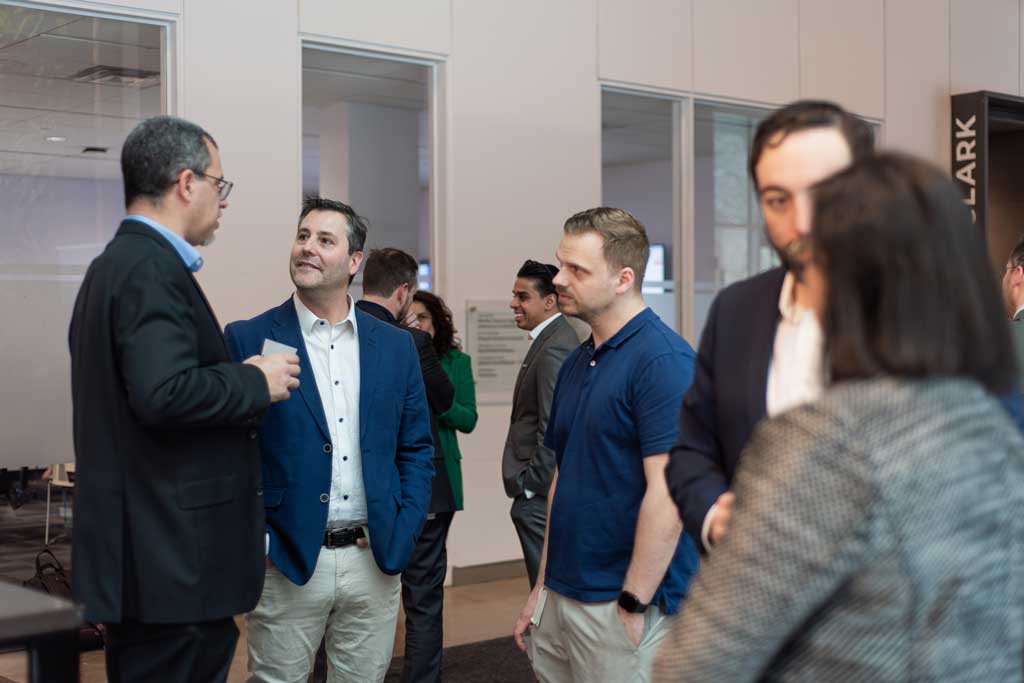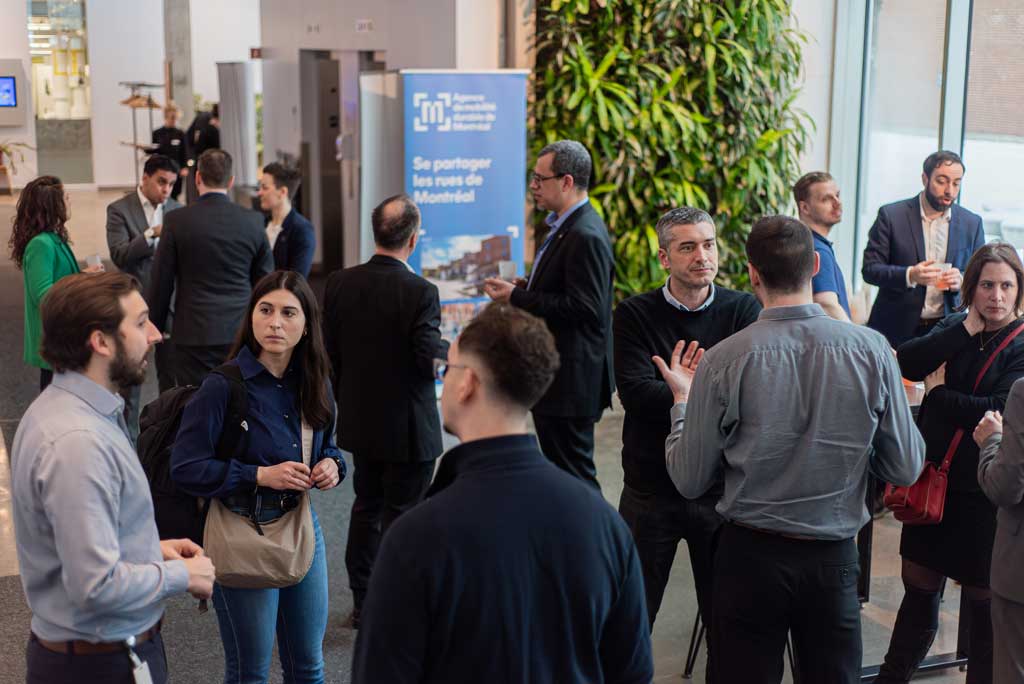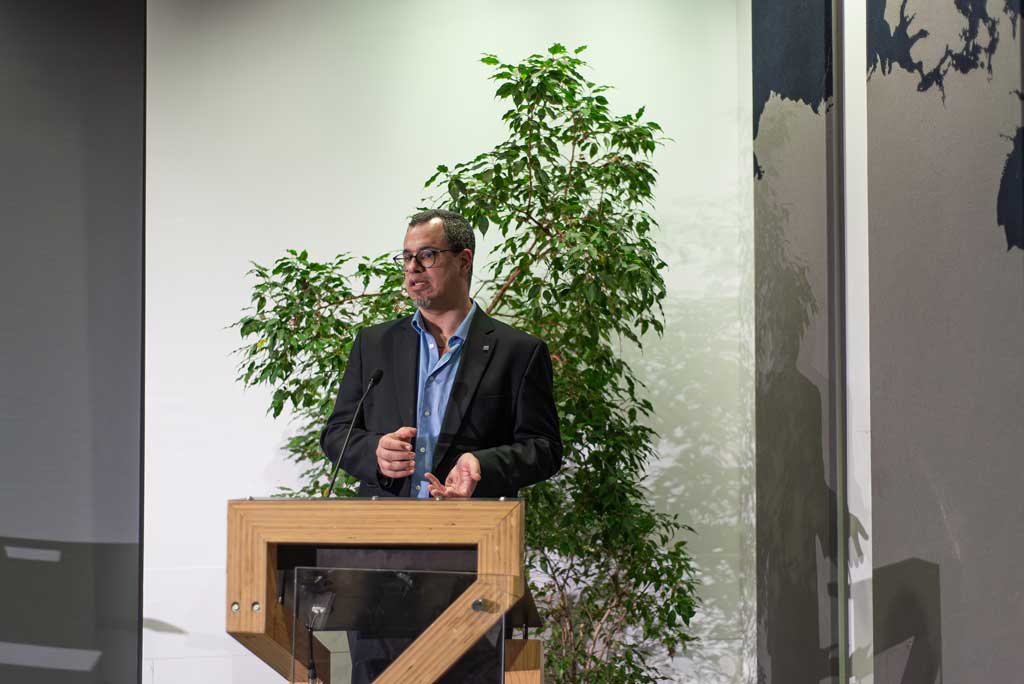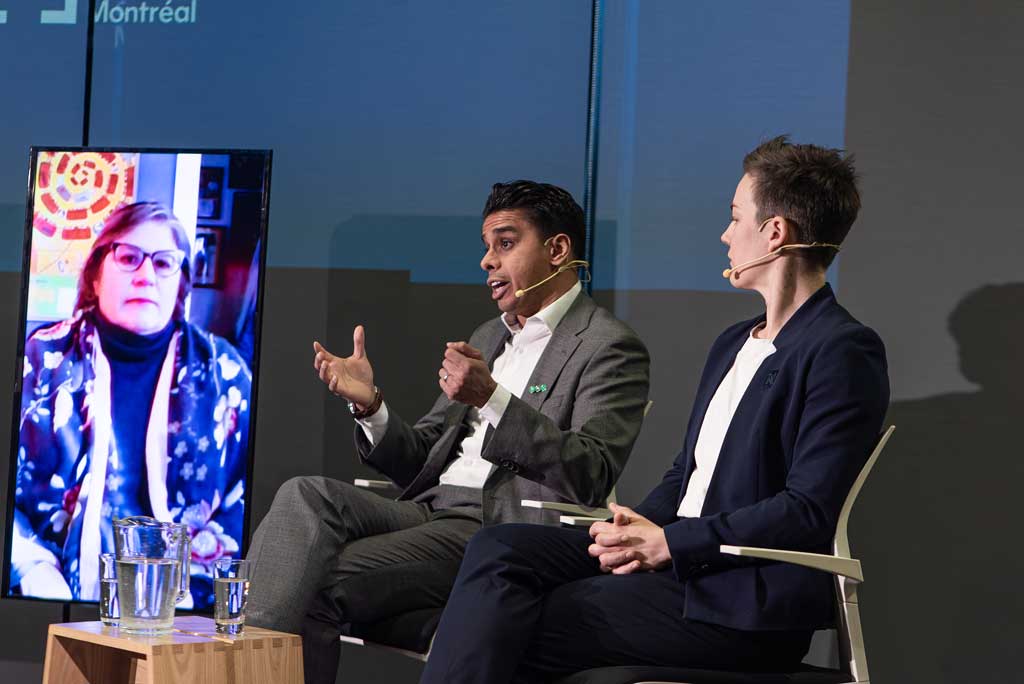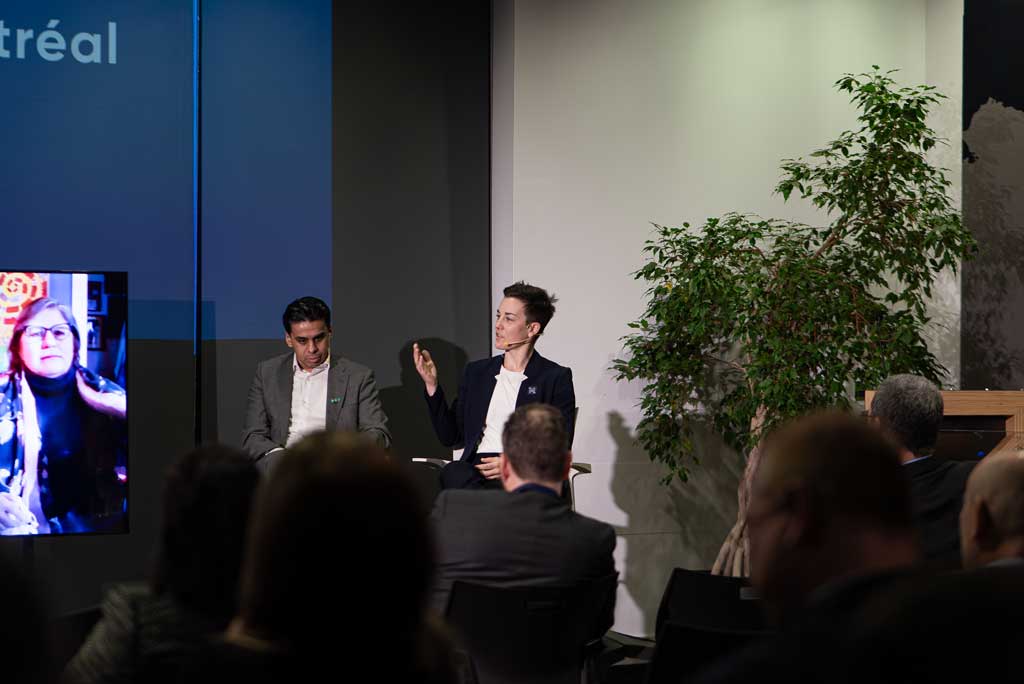Technology and Data : shaping the Future of Mobility
The first panel of the year held by the Agence de mobilité durable de Montréal discussed the use of technology and data to improve the planning of public space and optimize urban mobility. The event, which brought together five experts from Canada and the United States, highlighted the opportunities and challenges associated with a profound transformation of municipal practices that will make cities more accessible for everyone.
Using data for better decision making
Benoit Balmana, Chief Executive Officer of IVÉO, an organization with a mission to accelerate innovation in the municipal sector, discussed municipalities’ need for reliable data so that they can make informed, and justifiable, decisions about the development of public space. He cited the issue of parking in cities as an example: “People can get very emotional about this subject. But when you collect data 24/7 to get a highly accurate picture of the situation, it’s easier to argue whether more parking spaces are needed or not.”
The other panelists concurred. Mary Catherine Snyder, Parking Strategist at the City of Seattle’s Department of Transportation, presented her project for variable, performance-based rate setting, also known as dynamic pricing. She and her team use data collected over the past 10 years to set occupancy-based parking rates. In this way, prices change along with the district, the time of day and the time of year. “When we present data, people say they like the fact that we don’t just set rates randomly,” she explained.
Information that benefits the population
According to the panel members, the data collected absolutely must serve the population. Faiyaz Patel, Director of Parking Development at the Toronto Parking Authority, and his team looked at real-time occupancy of the city’s on- and off-street parking. The information was then integrated into a mobile app to provide real-time information on the availability of parking spaces. “The app allows people to get from A to B with less stress while alleviating traffic congestion in the city and reducing vehicle emissions," he said.
Obstacles and challenges of technology deployment
There are all kinds of technological solutions to ensure better planning of public spaces, such as sensors in the ground and on signs, automated reading of licence-plate numbers and apps to pay for parking spaces.
That being said, the panelists pointed out that the cost of purchasing, using and maintaining such technologies, as well as the size and diversity of the areas to be covered, create significant obstacles to their deployment. Nicolas Filion, Senior Director of Technology at the Agence de mobilité durable de Montréal, explained that, with more than 18,000 paid on-street parking spaces and 500,000 unregulated or residential parking spaces, obtaining an exhaustive picture of the occupancy rate for each location would be too costly.
The panelists cited a number of solutions that can reduce the cost of deploying technological projects, such as using multiple technologies simultaneously to obtain a comprehensive vision or extrapolating data collected in a limited area. Benoit Balmana added that projects can be tested at a lower cost in small cities before being scaled up in more populous municipalities.
Data management
Ethical and responsible data management, privacy and the security of personal information are priorities for the panelists. To achieve these goals, they consider anonymizing and securing data to be essential.
“The first thing is not to collect information if you don't need it or to delete it when you no longer need it,” said Nicolas Filion, citing the financial and environmental costs of storing large amounts of data in the cloud.
The panelists agreed that, even though new technologies make it possible to collect large amounts of data, it still isn’t always possible to process and analyze them fully. That being said, artificial intelligence could soon solve this problem.
Benoit Balmana pointed out that companies offering new technologies are aware of the issues and are highly creative in developing solutions to depersonalize and compress data.
Toward data standardization and better intermunicipal collaboration
Élisabeth Poirier-Defoy, Deputy Executive Director at MobilityData — an NPO in the field of open data — discussed solutions that facilitate the use of data and reduce the costs associated with collection and processing, including standardization and interoperability, such as cross-referencing data collected by different technological tools. “For example, in terms of sensors, one way to reduce costs would be to adopt a standard governing data creation and use,” she explained.
The panel members think municipalities need to share not only their data but also the lessons they’ve learned to accelerate innovation and avoid repeating the same mistakes. In Montréal, the transparency of data collection, processing and sharing is a priority. In Seattle, it has been a common practice for 15 years, and Toronto plans to follow suit by 2026. “One of the appealing features of the municipal setting is that we’re not in competition with one another,” said Faiyaz Patel.
In the near future, the Agence de mobilité durable will begin offering a mobility data portal so that members of the public can visualize and analyze open data from various organizations in Montréal’s ecosystem.
Our panelists

Chief Executive Officer, IVÉO

Senior Director of Technology, Agence de mobilité durable de Montréal

Director, Parking Development, Toronto Parking Authority

Deputy Executive Director, MobilityData
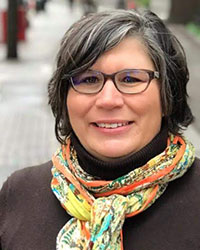
Parking Strategist, Seattle Department of Transportation

Moderator

